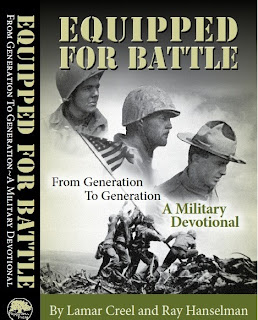As Paul the apostle begins
to wind down his words to the church members in Galatia, he gives
insight and last minute instructions to them. He has encouraged them
to restore one another when overtaken with a fault, bear one
another's burdens, bear their own burdens, and to be busy about their
own work. He has told them to take care of their teachers in the word
and has told them the importance of sowing to the spirit rather than
the flesh. In chapter six and verse eleven he shares his own
reference to his writings where he wrote:
You see how large a
letter I have written unto you with my own hand.
Paul
begins, “You see how large a letter I have written unto you...”.
There are two possibilities to Paul's words here. First, he may be
making reference to the size of the letter itself. He has written
five previous chapters, and we have seven more verses in our study to
finish this sixth one. If we think about how many times we have
written six chapter letters, we may understand what a long letter
this was.
However,
the second possibility is that Paul is making reference to the actual
“letter” size that he has written. In other words, he wrote the
lettering big. The Greek reads more like this, “See in how large
letters” I have written which may be a reference to this idea.
Paul referred to his eyes which may have been affected by his
Damascus road experience in a previous passage, Galatians chapter
four and fifteen, where he wrote:
Where is then the
blessedness ye spake of? for I bear you record, that, if [it had
been] possible, you would have plucked out your own eyes, and have
given them to me.
And it
is true that he usually dictated his letters and only wrote the
salutations for himself. We see references to this in the book of
Romans in chapter sixteen and verse twenty-two and in the book of
First Corinthians chapter sixteen and verse twenty-one. Paul
nonetheless felt this letter was important enough to write himself,
and whether he is referring to the length of letter or the size of
the letters themselves, we are very appreciative that he wrote it
“with my own hand.”
How long
has it been since we have written to anyone? We have such great
advantage with our technology driven society, and we have so many
opportunities to simply share with one another. We too might be able
to encourage someone, help someone, and bless someone just by sharing
a few words with them. Some of our letters might be long, and others
might just be a word or two, and maybe that is where our meditation
should rest today: Lord, Whom may I bless with my words today?
Next time will make another reference to the Judaizers as he begins
to close his writing, so read ahead, and let us join together then.
Until
tomorrow...there is more...
Look for
the daily devotional book “Equipped for Battle – From Generation
to Generation” in all major
bookstore
sites, www.amazon.com ; www.barnesandnobles.com ; download to
e-books, and find it locally at www.mrzlc.com/bookstore


















